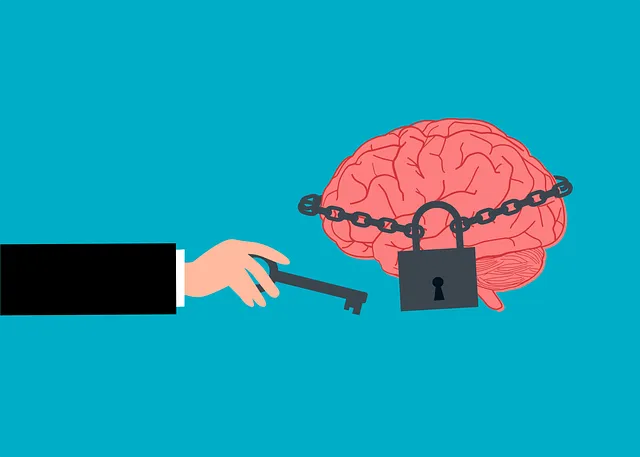Kaiser Permanente Mental Health Littleton offers innovative social skills training programs integrated with Mind Over Matter principles, empowering individuals with mental health conditions to navigate social situations confidently. These workshops focus on communication, empathy, and connection building, improving emotional resilience and managing symptoms. Trauma Support Services are crucial for trauma survivors, fostering meaningful relationships and expressing feelings. The program's holistic approach includes engaging activities and a mental wellness podcast series, promoting meaningful connections and accessible healing resources for clients' mental health journeys.
Social skills training is a powerful tool for individuals navigating mental health conditions. This article explores the critical connection between social skills and mental well-being, highlighting the expertise of Kaiser Permanente Mental Health Littleton in delivering effective programs. We’ll delve into key components making these trainings successful and discuss their profound real-life applications, empowering folks to build confidence, foster connections, and thrive.
From understanding the link to the benefits and who provides these essential services, this guide offers valuable insights for those seeking improved social interactions alongside mental health support.
- Understanding the Link Between Social Skills and Mental Health
- The Role of Kaiser Permanente Mental Health Littleton in Social Skills Training
- Key Components of Effective Social Skills Training Programs
- Benefits and Real-Life Applications for Individuals with Mental Health Conditions
Understanding the Link Between Social Skills and Mental Health

Social skills training plays a pivotal role in enhancing mental health, particularly for individuals managed by organizations like Kaiser Permanente mental health Littleton. Understanding the intricate link between social interactions and psychological well-being is paramount. The concept revolves around the idea that effective communication, empathy, and building connections foster emotional resilience and reduce symptoms associated with various mental health conditions.
Incorporating Mind Over Matter Principles, these training programs equip individuals with Emotional Well-being Promotion Techniques, enabling them to navigate social situations with confidence. For those who have experienced trauma, Trauma Support Services become invaluable tools. By improving social skills, individuals can better express their feelings, assert boundaries, and form meaningful relationships, all of which contribute to a holistic approach in managing mental health effectively.
The Role of Kaiser Permanente Mental Health Littleton in Social Skills Training

Kaiser Permanente Mental Health Littleton plays a pivotal role in providing comprehensive care for individuals navigating mental health conditions. One of their key contributions is Social Skills Training, an innovative approach designed to empower patients with essential tools for effective social interaction. This training program recognizes the profound impact of social connections on mental wellness and aims to build resilience through interactive workshops and practical exercises.
The Mental Health Littleton team offers a unique Resilience Building experience tailored to individual needs. Through engaging activities, clients learn to manage emotions, improve communication skills, and foster meaningful relationships. Additionally, their Mental Wellness Podcast Series Production provides valuable resources and real-life stories, enhancing the healing process. These initiatives reflect the organization’s commitment to holistic care, ensuring that emotional healing processes are accessible and supportive for all.
Key Components of Effective Social Skills Training Programs

Effective social skills training programs for mental health conditions often incorporate several key components, as recognized by organizations like Kaiser Permanente mental health Littleton. These programs aim to enhance communication, interaction, and relationship-building abilities among individuals with various mental health challenges. One crucial aspect is role-playing scenarios that allow participants to practice new skills in a safe environment, fostering confidence and reducing anxiety when facing real-life social situations.
Additionally, these training initiatives emphasize the development of coping skills as part of risk management planning for mental health professionals. By teaching individuals strategies to manage stress, regulate emotions, and adapt to changes, social skills training empowers them to navigate relationships more effectively. Incorporating evidence-based techniques from the Risk Management Planning for Mental Health Professionals framework ensures that participants learn not just social cues but also how to protect their well-being while interacting with others, ultimately promoting healthier social interactions and improved mental health outcomes.
Benefits and Real-Life Applications for Individuals with Mental Health Conditions

Social skills training offers a multitude of benefits for individuals navigating mental health conditions. By learning effective communication strategies, individuals can enhance their relationships, reduce social isolation, and improve overall emotional well-being. This type of training is particularly valuable in promoting confidence boosting techniques, which are essential for managing anxiety or depression that may hinder social interactions.
In real-life scenarios, these skills are applied in various settings like work places, schools, and community gatherings facilitated by Kaiser Permanente mental health Littleton. For instance, training can equip individuals with the ability to initiate conversations, actively listen, and express their needs assertively. This not only improves their experience at work but also fosters a sense of belonging and inclusion within their communities. The development of these social skills is integral to the success of public awareness campaigns focused on mental health, ultimately contributing to a more supportive and understanding society.
Social skills training, as a component of comprehensive care, plays a pivotal role in improving outcomes for individuals managing mental health conditions. Organizations like Kaiser Permanente Mental Health Littleton are at the forefront of this initiative, offering specialized programs that target core social competencies. By integrating these programs into treatment plans, professionals can empower individuals to navigate social interactions with greater confidence and ease, thereby enhancing their overall well-being. Effective training should focus on evidence-based methods, tailored interventions, and real-world practice, as highlighted by Kaiser Permanente’s successful initiatives. This approach not only benefits the individual but also fosters a more inclusive society that better supports those living with mental health challenges.






